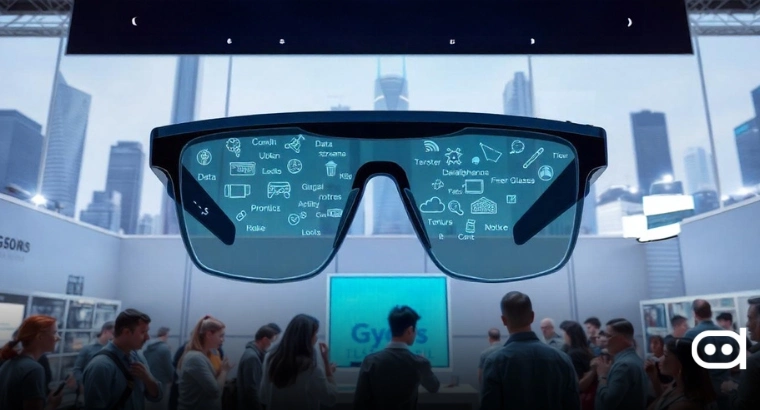
- Gyges Labs introduced its invisible display technology, dubbed DigiWindow, at the China International Optoelectronic Exposition (CIOE), by integrating it with industry-first AI glasses. The new technology uses meta-geometric optics to address common challenges in AI glasses, such as its bulkiness, aesthetics and practicality.
- With this launch, Gyges Labs aims to take advantage of the growing consumer AI hardware adoption and even make AI-powered smart glasses as popular in daily use as smartphones. Can DigiWindow help position Gyges Labs as a leader in the personal AI hardware market?
Gyges Labs, a company that manufactures intelligent, AI-powered wearable devices, announced the launch of its new AI smart glasses at the China International Optoelectronic Exposition. The device boasts an invisible display technology, called DigiWindow, which turns the glasses into a near-eye display. The move is a significant step forward in the AI glasses segment and could reshape the AI hardware race.
To tackle the issues that current AI glasses face, including bulky designs and less-than-practical features for everyday use, Gyges Labs developed the DigiWindow technology. It uses retinal projection to achieve the smallest and lightest near-eye display created for smart glasses yet, reducing the module’s size from centimeters to millimeters compared to traditional near-eye displays. Moreover, DigiWindow consumes less power and offers a week-long battery life.
The unique features of Gyges Lab’s smart AI glasses include the ability to display information that’s only visible to the wearer, thanks to its advanced optical technology. The module can also fit into various eyewear styles and reduces the overall cost, size, weight and light leakage that existing technologies such as Birdbath and Waveguide suffer from. Yet the standout features are undoubtedly its voice interaction and real-time translation capabilities, which Gyges hopes will essentially serve as a “second brain” for its consumers.
With the rise in consumer-centric AI hardware, Gyges Labs has also developed an AI engine for wearables, called Mirron, based on mirror neuron principles. The AI hardware market is expected to be valued at $234.6 billion by 2025, a significant tenfold increase from around $20 billion in 2018. Jia Jieyang, the Founder and CEO of Gyges Labs hopes to ride this wave, saying, “Our aim is to make AI glasses as common as smartphones, moving beyond niche tech enthusiasts and into everyday life.”
Read More: Bridging Europe’s Digital Health Divide
Gyges Labs’ latest AI glasses, powered by its DigiWindow technology, have the potential to redefine how individuals interact with AI agents in their daily lives. It also leverages the rising demand for AI-powered consumer technologies, positioning Gyges Labs as a leader in AI hardware. Whether its AI glasses become as ubiquitous as smartphones will depend on overcoming hardware limitations and the market’s hesitancy in adoption while enhancing user experiences beyond traditional offerings.





